Best Alternatives to WD-40 for Household Use
Run out of WD40? These unexpected but common household items can be used as substitute for it when in a pinch.
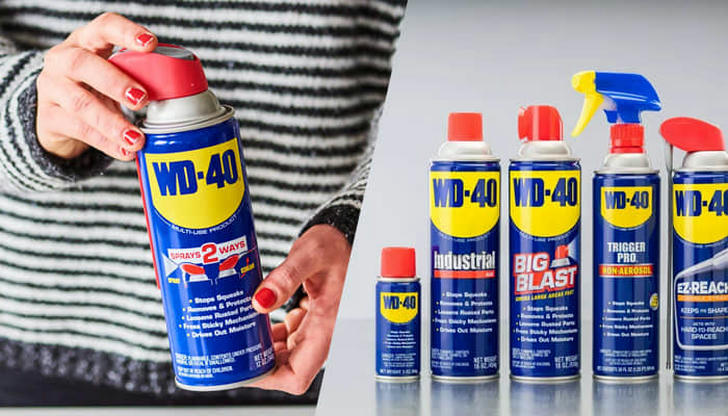
The door hinges in your house squeak, metal parts show signs of rust, or mechanical equipment needs lubrication, What’s often the first thing that comes to mind - WD-40! However, there are times when we find ourselves without this miraculous product on hand.
Here we’ve gathered you some surprising household items – those little things we may overlook in our daily lives – that can actually serve as ideal alternatives to WD-40. These alternatives not only address your maintenance needs but also contribute to a more environmentally-friendly and cost-effective approach. So, while we can't replicate that special formula, when you've run out of the original blend, we've got these helpful alternatives to recommend, so you don't have to solely rely on WD-40 for your home maintenance.
Without further ado, keep reading to learn about some best WD-40 alternatives for use around the house.
1. Cooking Oil
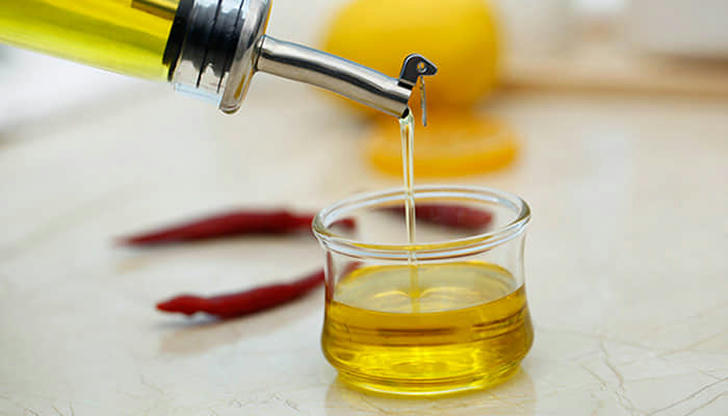
You're absolutely right – we're talking about the regular cooking oil that sits in your pantry. Beyond its culinary prowess, this common household staple can come to the rescue when your hinges start protesting. Applying a small amount of cooking oil to door hinges or other squeaky spots can reduce those annoying noises and make everything glide smoothly.
The best part? It's perfectly safe to use. It's edible, making it a smart choice, especially in areas where curious kids or playful pets roam. You won't have to worry about any harmful residues or toxic fumes lurking around. Just a drop of this trusty oil, and you're on your way to a quieter, smoother home.
2. Cooking Spray
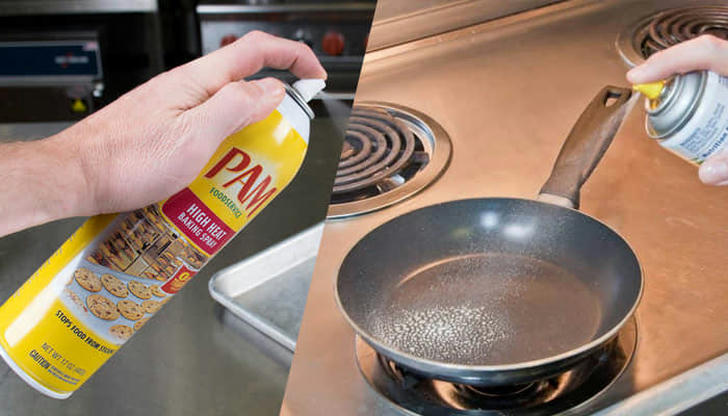
While primarily used to prevent food from sticking, this cooking spray can work wonders around the house. It’s the key to smoother operations, a polished touch for your metal pieces, a remedy for squeaks, and a hushed solution for those noisy garage doors. Spritzing a bit onto rusted metal surfaces and then wiping with a soft cloth can effectively remove rust and keep metal away from further corrosion.
3. Vinegar Solution
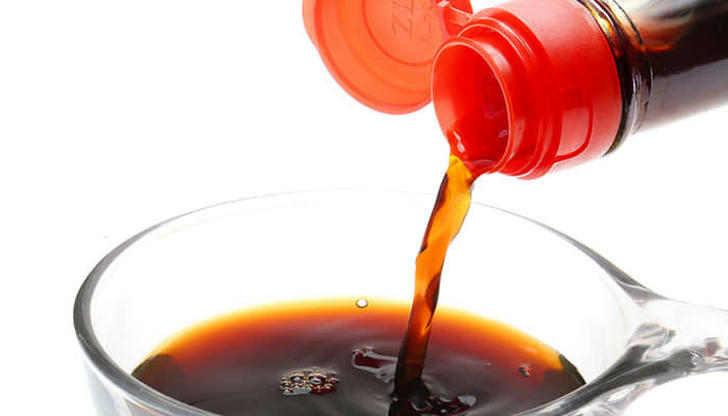
Vinegar, that unassuming liquid found in almost every household, when mixed in equal parts with water, transforms into a potent rust-busting concoction. Once applied to those pesky rusted areas, it dives into action, dissolving rust and removing metal surfaces from their orange clutches. All you need to do then is let it sit for a while before wiping clean.
Plus, it’s also an excellent option for lubrication. It seeps into hinges, gears, and joints, offering a friction-free existence that keeps things moving with ease.
4. Petroleum Jelly

This versatile household item can be used to lubricate hinges and prevent rust. Its thick, greasy texture makes it a great choice for staying in place and offering long-lasting protection. Picture a substance that's neither too thick nor too thin, striking the perfect balance to adhere and protect. When applied to hinges, gears, or any metal prone to rust, it forms a protective barrier that keeps moisture and corrosion at bay.
In addition, Petroleum jelly's dense texture makes it ideal for tasks where thinner oils might lead to unwelcome mess. It steps in as a rust inhibitor for metal tools, lends a hand in lubricating light bulb threads, and tames the stubborn nature of sticky door hinges.
5. Coconut Oil
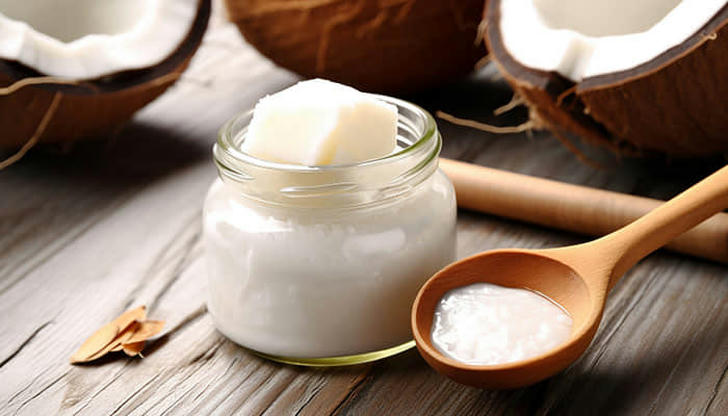
Beyond its culinary use, coconut oil can be applied to metal surfaces to prevent corrosion and provide a smooth, natural lubricant. It forms a barrier against moisture and oxidation, keeping your metal items in top shape. Plus, it's a gentle, eco-friendly choice that ensures smooth movements and a longer life for your belongings.
6. Hand Cream or Lotion
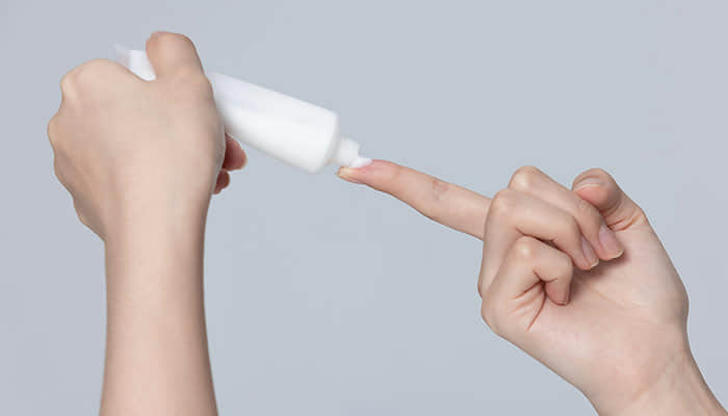
Your everyday hand lotion isn't just for dry skin –it can also hush squeaky hinges and tricky locks. Its moisturizing power acts as a quick lubricant, easing friction and restoring smooth movement.
7. Candle Wax

Rubbing a candle along the surface of door tracks or window slides can provide a friction-reducing layer that helps items move more smoothly. In this way, stubborn doors slide effortlessly, and windows open without a hitch. Moreover, it also extends the lifespan of your hinges and tracks. By reducing friction, it minimizes the wear and tear that often leads to replacements.
8. Silicone Spray
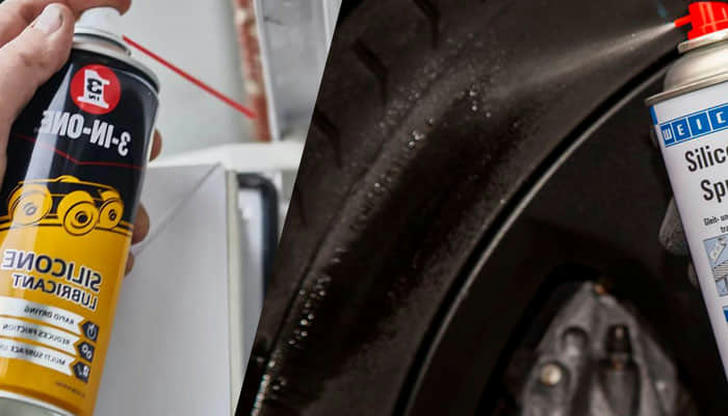
A silicone-based lubricant, readily available in most hardware stores, can offer rust prevention and smooth operation for various household items. And it's not just about silencing squeaks. Silicone spray creates a barrier that shields against rust's stealthy advances, adding years to your possessions' life span.
9. Pipe Lubricant Grease
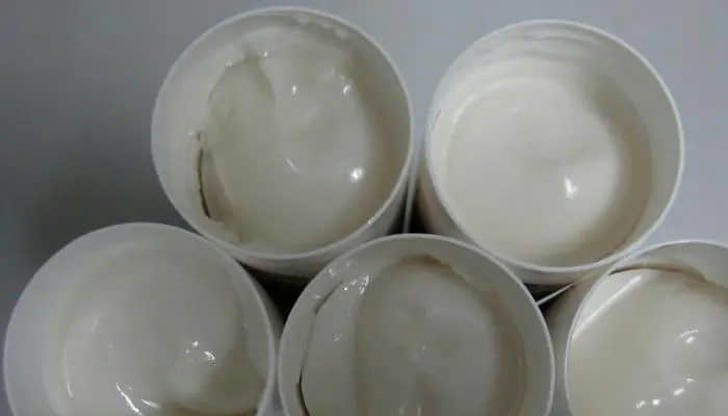
Formulated with a combination of silicone oil and silicone grease, pipe lubricant grease boasts its prowess as a water-resistant lubricating solution. As the name suggests, it finds its primary domain in pipelines, where its silicone-based composition shines. This organic-silicon blend surpasses petroleum-based lubricants when it comes to efficiency, particularly in damp environments.
It's in dampness that pipe lubricant grease comes into its own. The silicone foundation lends it the remarkable ability to stay effective under wet conditions, making it a go-to for maintaining pipes and other water-affected mechanisms.
Remarkably, select brands of this grease are non-toxic and entirely biodegradable – a feature that not only aligns with eco-consciousness but also positions it as a favorable alternative to WD-40.
Simple methods to create DIY alternatives to WD-40 for household use:
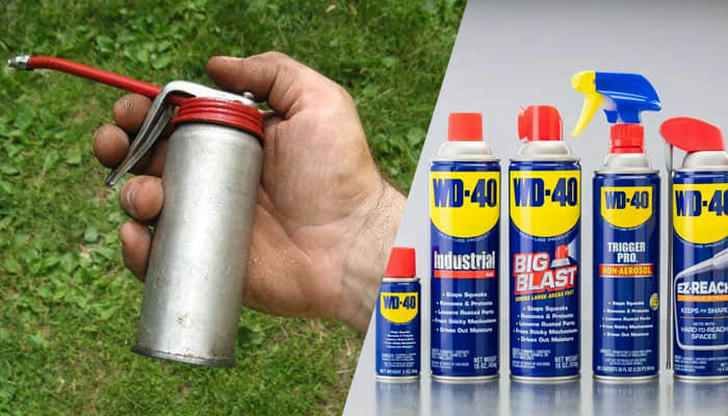
Method 1: Vinegar and Baking Soda Solution
Step 1: Gather your materials. You'll need white vinegar, baking soda, a spray bottle, and a small funnel.
Step 2: Mix the solution. Pour equal parts of white vinegar and baking soda into a bowl. The baking soda will fizz initially, so stir until it forms a smooth paste.
Step 3: Transfer to a spray bottle. Use the funnel to pour the mixture into a spray bottle. Secure the nozzle.
Step 4: Application. This alternative works well for rust removal and light lubrication. Spray the solution onto the affected area, let it sit for a few minutes, and then scrub gently with a soft cloth or brush.
Method 2: Cooking Oil Blend
Step 1: Gather your materials. You'll need cooking oil (vegetable, olive, or similar), a small bowl, and a cloth.
Step 2: Mix the blend. Pour a small amount of cooking oil into the bowl. You can add a few drops of dish soap for enhanced effectiveness. Mix well.
Step 3: Application. This mixture is great for lubricating hinges and preventing squeaks. Dip a cloth into the blend and apply it to the desired areas. Wipe off any excess oil.
Both of these DIY alternatives offer effective solutions for common household needs, whether it's rust prevention, lubrication, or silencing squeaky parts. Remember that while these alternatives might not replicate the exact formula of WD-40, they provide handy options using easily available ingredients. Always test a small area before applying extensively.

